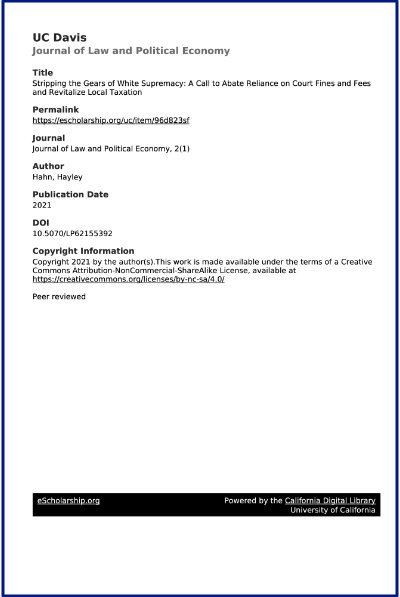By Matthew Menendez, Michael F. Crowley, Lauren-Brooke Eisen, and Noah Atchison
The past decade has seen a troubling and well-documented increase in fees and fines imposed on defendants by criminal courts. Today, many states and localities rely on these fees and fines to fund their court systems or even basic government operations.
A wealth of evidence has already shown that this system works against the goal of rehabilitation and creates a major barrier to people reentering society after a conviction.
They are often unable to pay hundreds or thousands of dollars in accumulated court debt. When debt leads to incarceration or license suspension, it becomes even harder to find a job or housing or to pay child support. There’s also little evidence that imposing onerous fees and fines improves public safety.
Now, this first-of-its-kind analysis shows that in addition to thwarting rehabilitation and failing to improve public safety, criminal-court fees and fines also fail at efficiently raising revenue.
The high costs of collection and enforcement are excluded from most assessments, meaning that actual revenues from fees and fines are far lower than what legislators expect. And because fees and fines are typically imposed without regard to a defendant’s ability to pay, jurisdictions have billions of dollars in unpaid court debt on the books that they are unlikely to ever collect. This debt hangs over the heads of defendants and grows every year.
This study examines 10 counties across Texas, Florida, and New Mexico, as well as statewide data for those three states. The counties vary in their geographic, economic, political, and ethnic profiles, as well as in their practices for collecting and enforcing fees and fines.
New York: Brennan Center for Justice at New York University School of Law 2019. 68p.







